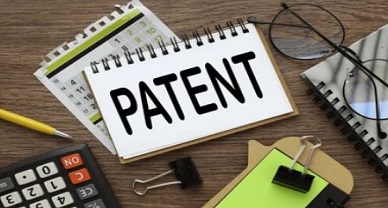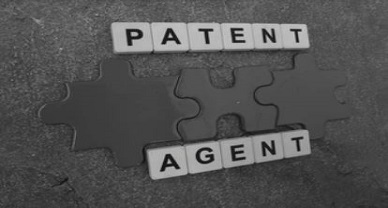In such instances, many countries impose the requirement of obtaining a Foreign Filing License (FFL) from an appropriate authority. FFL is permission obtained from the appropriate authority of the country of residence of an applicant to file a patent application directly in a foreign country without filing in the country of residence. The objective of FFL is to monitor all inventions exported to a foreign country especially inventions pertaining to defense and atomic energy. Thus, such license aids in protecting the national security of a country. Failing to obtain an FFL from the country of residence of an applicant may lead to harsh penalties faced by the applicant.
FFL in India
According to Section 39 of the Patent Act, 1970:
“Residents not to apply for patents outside India without prior permission.—No person resident in India shall, except under the authority of a written permit sought in the manner prescribed and granted by or on behalf of the Controller, make or cause to be made any application outside India for the grant of a patent for an invention unless—
(a) an application for a patent for the same invention has been made in India, not less than six weeks before the application outside India; and
(b) either no direction has been given under sub-section (1) of section 35 in relation to the application in India, or all such directions have been revoked.
(2) The Controller shall dispose of every such application within such period as may be prescribed:
Provided that if the invention is relevant for defense purposes or atomic energy, the Controller shall not grant permit without the prior consent of the Central Government.
(3) This section shall not apply in relation to an invention for which an application for protection has first been filed in a country outside India by a person resident outside India.”
Thus, if a person is a resident in India and requires the first filing of an application in a foreign country, he shall obtain written permission in a prescribed manner by or on behalf of the Controller. Also, if the first filing is done in India, the applicant would require to obtain the license, if he/she requires to file a said application within 6 weeks of the date of filing in India. Also, no directions should have been made under section 35(1) pertaining to secrecy provision or such directions should have been revoked. Further, it becomes the duty of the Controller to dispose of every such application within 21 days of making such a request (Rule 71 of the Patent Rules, 2003). If the invention is pertaining to defense purpose or atomic energy, the Controller shall require the prior consent of the Central Government.
According to Section 40, if any person makes or causes to be made an application for grant of a patent outside India in contravention of Section 39 the application shall be deemed to have been abandoned and the patent granted, if any, shall be liable to be revoked under section 64.
Further, section 118 imposes a penalty for contravention of section 39. According to section 118, if any person makes or causes to be made an application for the grant of a patent in contravention of section 39 he shall be punishable with imprisonment for a term which may extend to two years, or with fine, or with both.
The following table represents the FFL requirement in different countries:
| S.No. | Country | FFL Requirement | Clause | Remarks |
|---|---|---|---|---|
| 1. | United States (U.S.) | Yes | 35 U.S.C. § 184-188 | A license is required to be obtained from the Commissioner of Patents when a person requires to file in any foreign country to six months after filing in the United States an application for patent or for the registration of a utility model, industrial design, or model in respect of an invention made in the United States. A license shall not be granted with respect to an invention subject to an order issued by the Commissioner of Patents pursuant to secrecy provisions (35 U.S.C. §181) without the concurrence of the head of the departments and the chief officers of the agencies who caused the order to be issued. The license may be granted retroactively where an application has been filed abroad through error and the application does not disclose an invention within the scope of section 181. |
| 2. | China | Yes | Article 20 of Patent Law of the People’s Republic of China | A foreign filing license is mandated for an invention or a utility model developed in China even if the filing has been made in China. Any unit or individual that intends to apply for a patent in a foreign country for an invention or utility model accomplished in China shall submit the matter to the patent administration department under the State Council for confidentiality examination. With regard to an invention or utility model for which an application is filed for a patent in a foreign country in violation of the provisions of this requirement, if an application is also filed for the patent in China, the patent rights shall not be granted. |
| 3. | Japan | Not Applicable | ||
| 4. | Korea | Yes (limited) | Article 41 of the Korean Patent Act, Act No. 950 | filling in a foreign country is not prohibited. If the invention pertains to defense, permission from the Government is required. |
| 5. | Australia | Not Applicable | ||
| 6. | Mexico | Not Applicable | ||
| 7. | United Kingdom (U.K.) | Yes | Section 23 of the Patents Act, 1977 | No person resident in the United Kingdom shall, without written authority granted by the comptroller, file or cause to be filed outside the United Kingdom an application for a patent for an invention unless an application for a patent for the same invention has been filed in the Patent Office (whether before, on or after the appointed day) not less than six weeks before the application outside the United Kingdom and either no directions have been given under section 22 in relation to the application in the United Kingdom or all such directions have been revoked. |
| 8. | Germany | Yes (limited) | Section 52 | A patent application containing a state secret (Section 93 of the Criminal Code) may only be filed, outside the territory to which this Act applies, with the written consent of the competent highest federal authority. Consent may be given subject to conditions. |
| 9. | France | Yes | Article L 614-18 of Intellectual Property Code | International applications for the protection of an invention submitted by natural or legal persons having their place of residence or business in France must be filed with the National Institute of Industrial Property where no claim is made to priority under an earlier filing in France. In such cases, the National Institute of Industrial Property shall act as the receiving office. |

